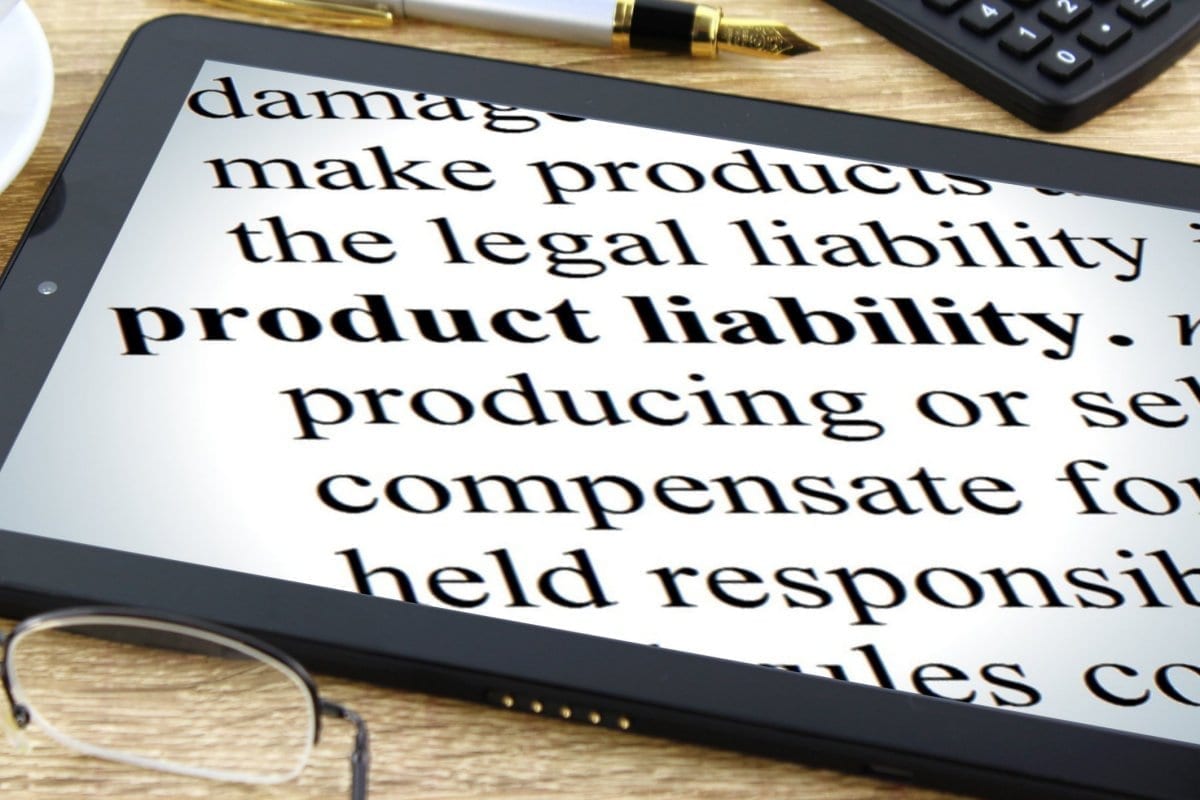Samsung hoped to make a lot of money from its high-end Galaxy Note 7 smartphone. But when its battery started causing fires, it ended up a significant financial disaster.
Most personal injury cases involve someone doing something wrong and causing an injury. They’re driving drunk, not cleaning a wet floor, taking a left turn in front of a motorcyclist, or letting their dangerous dog run loose. Sometimes the cause is a product that, despite being used as instructed, is unsafe. It causes an accident that results in injuries or deaths.
Tyler Fleck represents those injured in accidents. He investigates the incident to determine how and why it happened as well as who’s to blame. The cause may be a hazardous product. If so, you may have a product liability claim against those who designed, manufactured, distributed, and sold it. If you’ve been injured and want to learn about your legal rights, call Tyler Fleck today at (270) 446-7000.
Product liability cases are brought against those who put into the “stream of commerce” products that are dangerous despite being used as instructed. They may not have sufficient warnings or instructions. Their engineering, design, or manufacture may be defective. Even if the parties did all they could to make it safe, they might still be held responsible for the harm it causes.
According to Kiplinger magazine, here are some of history’s most expensive recalls of dangerous products. They include companies that voluntarily took their products off the market or were ordered to do so by the federal government.
Toyota’s Floor Mats Lead to Unintended Acceleration
In 2010, at the cost of $3.2 billion, Toyota recalled 8.1 million vehicles because gas pedals could get stuck in floor mats and cause other problems. The government estimated 89 people over the prior decade may have been killed because of defective floor mats. In addition to the recall cost, Toyota paid a $1.2 billion fine to prevent legal action by the Justice Department over allegations it covered up information about the poorly fitting floor mats and other safety problems.
General Motors’ Faulty Ignition Switch May Have Killed More Than a Hundred People
Faulty ignition switches in GM vehicles shut down engines without warning. That disabled power steering, brakes, and airbags, possibly causing accidents that killed at least 124 people and injuring twice as many. GM recalled 30.4 million cars worldwide as a result, costing it $4.1 billion in 2014. That covers:
- $2.8 billion to repair vehicles
- $870 million to resolve injury and death claims
- $900 to settle legal issues with the Department of Justice
That year American stocks, on average, gained more than 11% while GM stock sank 15%.
Samsung’s Galaxy Note 7 Was a Fire Hazard
Samsung hoped to make a lot of money from its high-end Galaxy Note 7 smartphone. But when its battery started causing fires, it ended up a significant financial disaster. The Galaxy Note 7 was discontinued and recalled in 2016. The US Consumer Products Safety Commission got 96 complaints of overheating batteries and fires within two months of the product’s release. Samsung recalled 2.5 million of the smartphones, which at the time were some of the most expensive in the market. The smartphone ended up costing the company $5.3 billion.
Faulty Firestone Tires on Ford Broncos That Easily Tipped Over Were a Deadly Combination
In 2000, at the cost of $5.6 billion, Bridgestone, the Japanese tire company that owned Firestone Tire and Rubber Company, recalled tires used on Ford Broncos and pickup trucks. The tires prematurely failed, and if they did when vehicles were going at high speeds, they had a good chance of rolling over. It’s estimated 271 Americans were killed and more than 800 were injured in these accidents.
Both companies blamed one another, and the two recalled a total of about 19.5 million tires. It cost Bridgestone about $2 billion, Ford about $3 billion, plus they faced $600 million in personal injury claims. Firestone had supplied Ford tires for about a hundred years, but this recall ended the relationship.
Takata Air Bags Exploded Like Hand Grenades

Defective airbags are the subject of the biggest product recall in history, which started in 2008. Airbags in vehicles inflate to cushion vehicle passengers during accidents. Takata’s safety devices were sometimes dangerous, killing at least 20 people. They used chemically powered devices to inflate airbags rapidly. These devices sometimes exploded, shooting metal fragments into drivers and passengers.
Takata, a Japanese manufacturer that opened its doors in 1933, supplied automakers across the globe. Worldwide about 100 million inflators were recalled, about half in the US. Removing all of them may be completed until 2023. As of 2016, the estimated recall cost was $24 billion. In 2017 the company declared bankruptcy, and the following year its assets were sold for $1.6 billion. The money was used to pay personal injury claims.
Tyler Fleck Helps Those Injured in Accidents Obtain the Compensation They Deserve
If you’re seriously injured in an accident caused by another, you can trust Tyler Fleck to represent you in an insurance claim or lawsuit. Whether the person causing it lives on the next street over or a corporation on the other side of the world is to blame, you can trust him to protect your legal rights and get you fair and reasonable compensation for what you suffered. Remember if you need an accident attorney in Kentucky, contact him today.


Join the conversation!